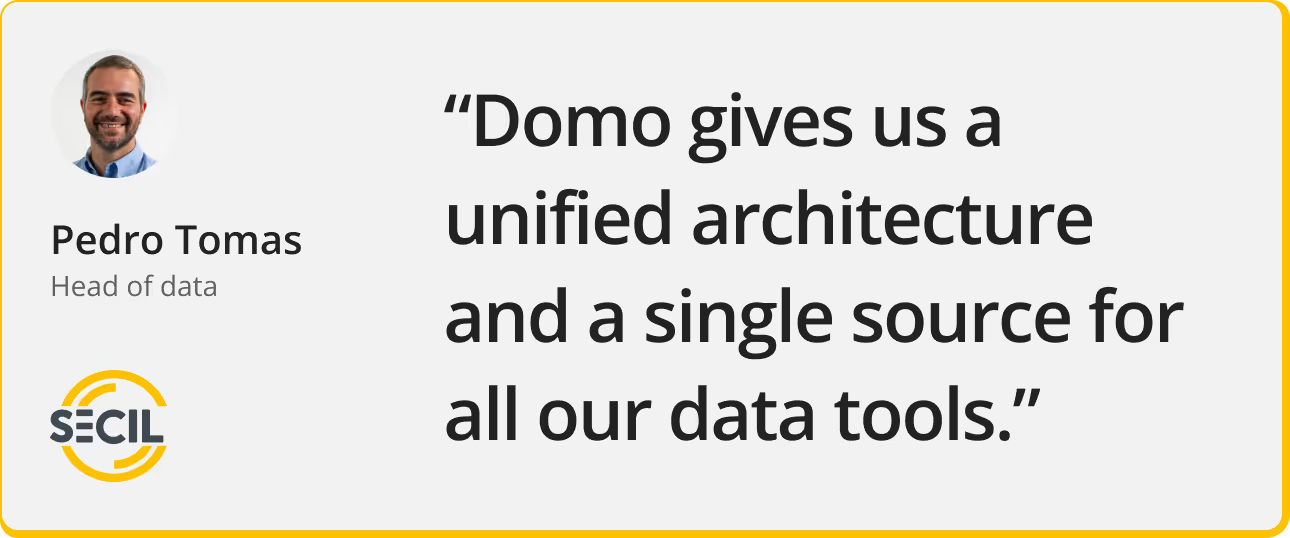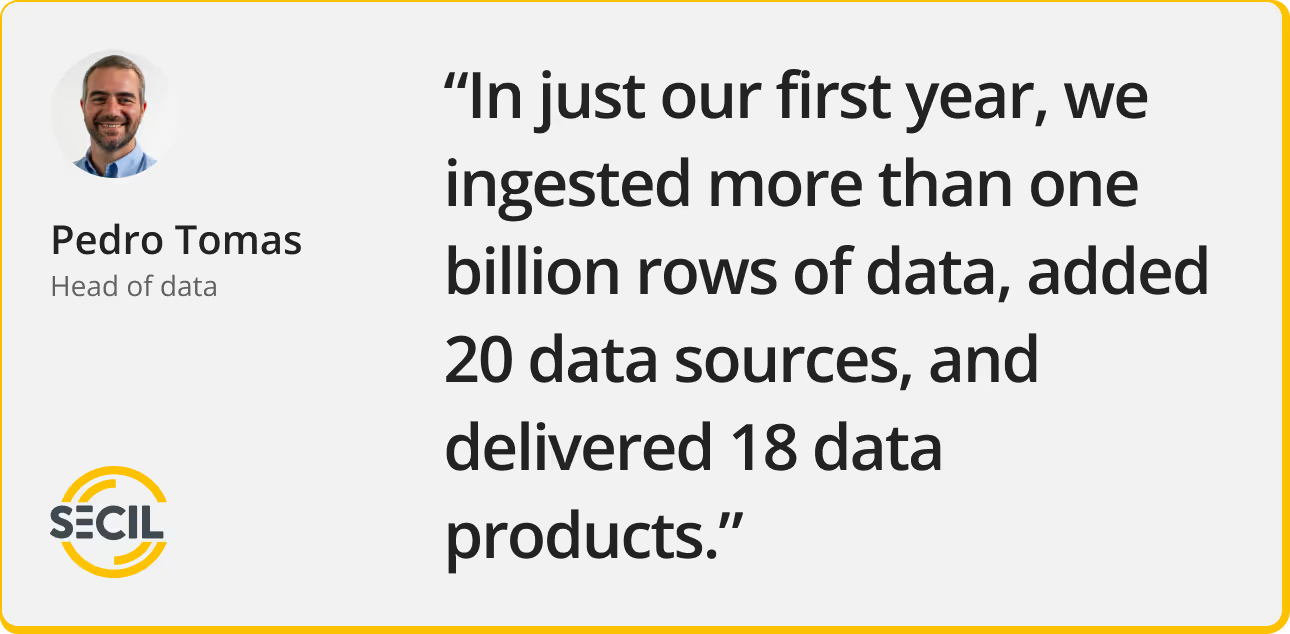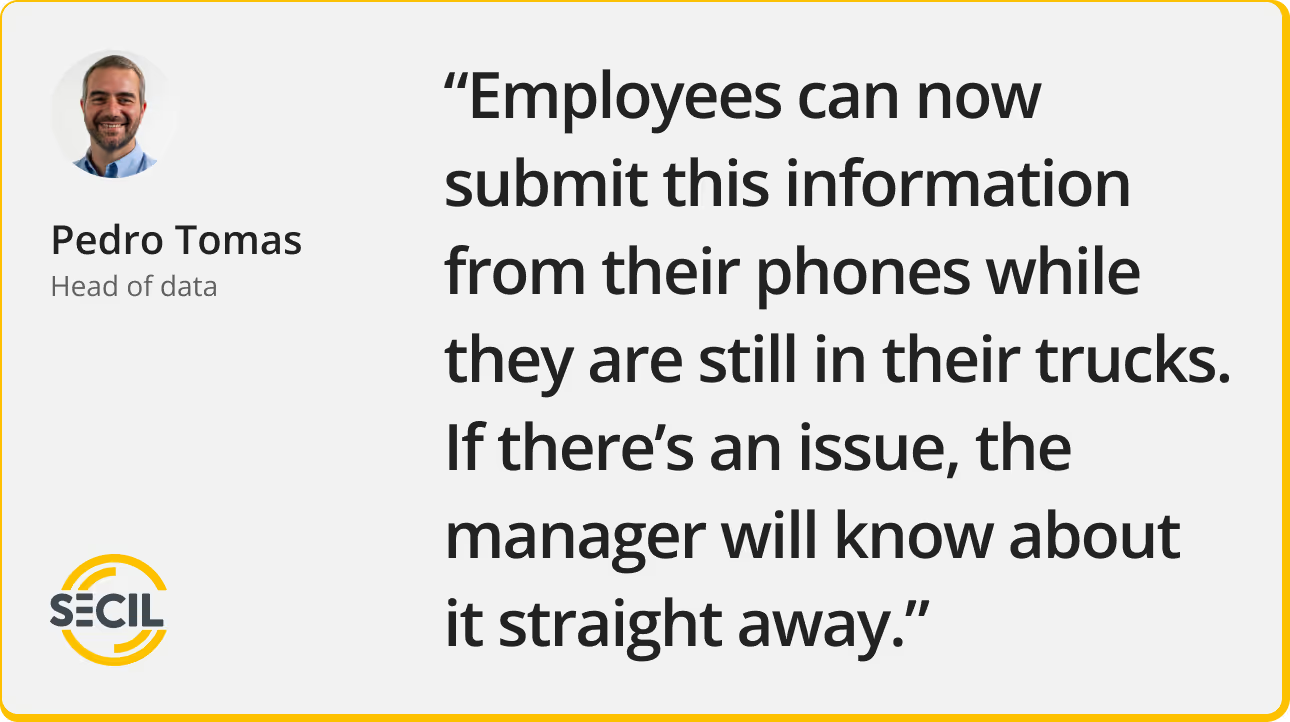
Saved 100s of hours of manual processes when predicting game viewership when using Domo’s automated dataflow engine.
Secil



Founded 1906 Portugal-based Secil produces cement, concrete, mortar, and aggregates across plants in Europe, Africa, South America, and Asia.
https://www.secil.pt/Challenge:
Secil’s data was fragmented across silos, making it difficult for teams to collaborate or trust each other’s numbers.
Solution:
With Domo, Secil built a unified, real-time data foundation that connects corporate systems with factory operations.
Impact:
Secil now works from a shared data foundation while positioning itself forAI-driven automation.

From homes and skyscrapers to highways and runways, concrete is the essential building material for modern society. As Portugal’s leading cement manufacturer, Secil has a production capacity of more than 9 million tons of cement for builders across seven counties and four continents. With Domo, Secil built the firm data foundation it needed to connect its corporate systems with the production floor.
“Domo came in as the Swiss Army knife of data and analytics,” said Pedro Tomas, head of data at Secil. “It’s very fit for purpose for everything we need to do.”
Before Domo, Secil struggled with fragmented, disconnected data systems that made it difficult for its corporate headquarters and various cement plants to work as one. Each production facility produces massive amounts of data due to its IoT equipment, sensors, and production systems, while finance, IT, and sales teams generate their own data sets. The result was a landscape full of duplicated work, inconsistent metrics, and decisions made from conflicting versions of the truth.
“Several times the numbers didn’t add up because different teams used different calculations or metrics,” Tomas said. “We expect data to be the lifeblood of the corporation, especially as we explore how we’ll be using AI to automate action.”
With Domo, Secil has created a scalable, real-time data architecture that connects leadership, commercial teams, and factory managers. Secil used Domo to define and implement a company-wide data strategy that included discovering, cataloging, and connecting all its data sources; fixing its data quality and governance issues; and using personalized data permissions to deliver the right insights to the right people.

“We had the data in the source systems, but we didn’t have normalization of data across the business. Domo gives us a unified architecture and a single source for all our data tools,” Tomas said. “In just our first year, we ingested more than one billion rows of data, added 20 data sources, and delivered 18 data products.”

Secil uses Domo to eliminate manual processes and make data instantly accessible across the organization. For example, quarry workers previously had to submit their paper-based production notes at the end of the day to their manager, who would then manually enter the information into a spreadsheet before doing analysis or sharing it with corporate.
“Employees can now submit this information from their phones while they are still in their trucks,” Tomas said. “If there’s an issue, the manager will know about it straight away. It has actually improved safety as well by allowing free time to getting their boots on the ground for safety checks instead of just entering information.”

Meanwhile, commercial teams now leverage shared data marts encompassing cement, aggregates, mortar, and concrete to build their own dashboards fed by automated pipelines, giving users near-real-time access to critical business data. In addition, product quality teams can analyze quality metrics and adjust material inputs in real time to reduce waste, optimize additive usage, and improve output consistency.
Looking ahead, Secil is exploring how it can leverage Domo.AI to allow its IoT systems to automatically act on operational data, such as triggering an increase in production in the event of a spike in orders. “Our expectations are high,” Tomas said. “This will be the next major breakthrough for us.”
.avif)
Founded 1906 Portugal-based Secil produces cement, concrete, mortar, and aggregates across plants in Europe, Africa, South America, and Asia.





See how your data can drive faster, clearer decisions.